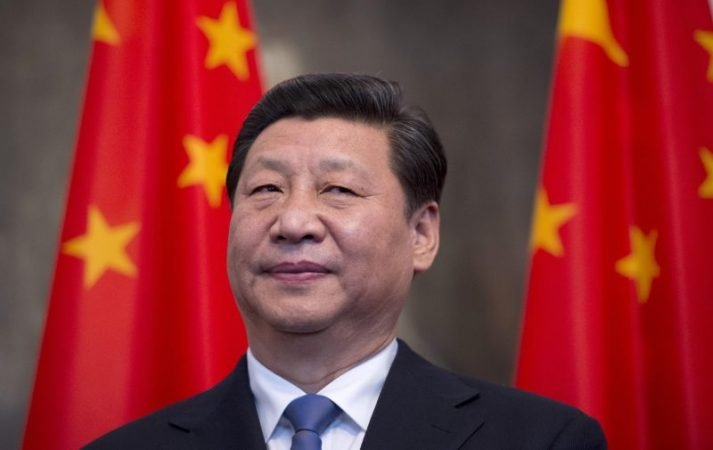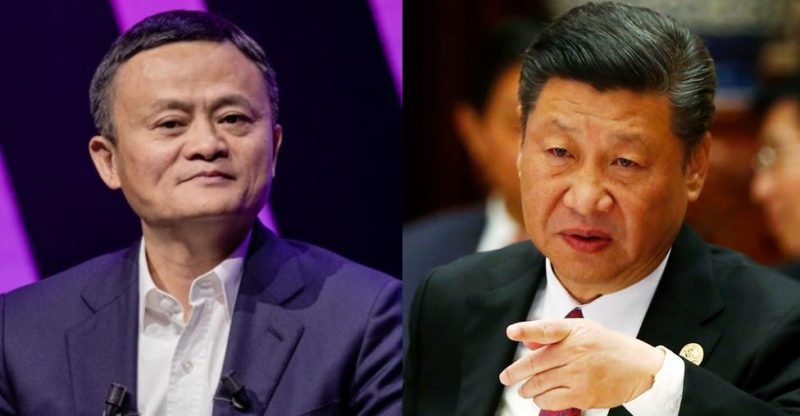Xi Jinping’s war with Big-tech Companies

Last week, Ali Baba’s Jack Ma, the well-known business Tycoon of China, stepped down from his position as the President of Hupan University, founded by him six years ago. Jack Ma features a very influential personality that every young Chinese would want a similar career graph. He has sung on stage, starred in a movie, and writes kung-fu fiction and practices, all of these portray him as a superhero and in addition, has openly spoken against regulators within the private sector which has made him the rationale for Xi Jinping’s insecurity. Building pressure on the private Big-tech companies by Beijing isn’t new but has acquired new characteristics by also targeting the high-profile business tycoons.
The private sector in china
The private sector in China has greatly contributed to china’s economy but their rise and growing strength is usually fear for the state. According to World Economic Forum, “The combination of numbers 60/70/80/90 are frequently used to describe the private sector’s contribution to the Chinese economy, they contribute 60% of China’s GDP, and are responsible for 70% of innovation, 80% of urban employment and provides 90% of new jobs. Private wealth is also responsible for 70% of investment and 90% of exports”.
Historically, China emerged as the market-oriented economy in the 1970s from a centrally planned economy which gave a crucial role for private entrepreneurs and private enterprises. In the 1990s, China saw the disintegration of the Soviet Union and its assets getting privatized. Beijing does not want this to happen in China and hence private enterprises are always under checks of the state. China being wary of its private sector did institute a policy in 2000, stating that party cells should be established inside private firms. Beijing was rapid and strict with this policy that 80% of private firms established party cells by 2018. CCP involves more of its officials inside private firms giving no choice for the Private sector and sometimes the CEO is itself the member of the party like Jack Ma.
Another way in which it controls the private sector is by starving their credit and asking them to align with the state’s goals. Xi personally stopped the world’s largest IPO amounting to $35 billion by the ANT group, which is Ali Baba’s financial payment arm after his speech against China’s state regulation in October 2020. Ali Baba and Tencent have always been found violating norms of the party who in the end are either fined or asked for a public apology.

Xi’s attitude towards tech-giants
Xi’s economic policy has always placed the state sector as the cornerstone of the economy. His policies indicate his effort to erase the line between private and state. An agricultural industry Tycoon, Sun Dawn was arrested on a variety of charges including illegal mining and “seeking quarrels and unwanted trouble”, over a land dispute between his company and state-owned farm. In 2016, during a national meeting, xi advocated for a more expansive role for the party in the private sector. He further extended this measure in 2018, by creating a new corporate governance code that advised firms both in-home and abroad to include in their internal guidelines an expansive role for the party.
The past events between the state and private sector resonate that China will go to any extent to make sure that private sectors are in a low profile. The rise of an individual’s popularity is considered more dangerous and always despised by the party. Recently, Zhang Yiming of Bytedance, the third big tech-titan of China, the man liable for creating a worldwide phenomenon with his app TikTok, stepped down as CEO stating that he is “not very social”. Zhang Yiming will remain as the chairman and his college roommate Liang Rubo will become the new CEO of Bytedance. Zhang has always been a trouble for CCP, first with his app Jinri Toutiao, a news app that was temporarily removed and restored when he made a public apology. Secondly, another app that grew in a short period gathering 200 million followers was Neihan Duanzi which shares jokes and memes and had to be highly regulated and was eventually banned for its “vulgarity” and “improper content”.
The third richest man of China, with a fortune of $35 billion, creator of the e-commerce app Pinduoduo stepped down stating that he will pursue “new, long term opportunities”.
Xi’s state has been aggressive with its private sector, especially with its high-profile tech giants. It wants economic growth but does not want any business tycoon challenging its status-quo. In a simple sense, it does not want any big tech to get bigger than the state, and hence CCP continues to scrutinize every step of the private sector. Truly Xi’s era is a difficult phase for all private sectors in China as the state ramps up its control over it. The future of China’s private sector’s independence is uncertain and ambiguous.


















